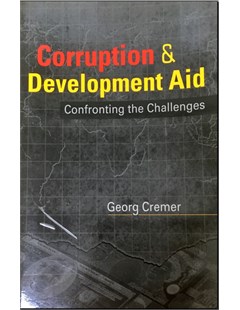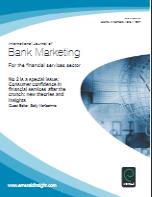Corruption & development aid : Confronting the challenges
The book promotes transparency and understanding about the reasons behind and the detailed mechanisms of corruption related to development assistance. It facilitates communication among people directly involved in development work, in local and internal organizations at all levels.
2002
- Chapter 1. Corruption in Development Aid: From Taboo to Political Action • A Problem That Should Not Exist • The Beginning of Political Change • The Plan of the Book
- Chapter 2. What Is Corruption? • Bribery • Misappropriation • Nepotism
- Chapter 3. How Useful Is Corruption? • A Catalyst for Competition? • Less Red Tape? • Incentives for Qualified Civil Servants? • Illicit Income as an Essential Source of Capital Accumulation? • Bribery as a Means of Protecting Minorities? • A Balanced Assessment of Corruption
- Chapter 4. Corruption in Development Projects • How Limited Is Empirical Access? • Corruption in the Phase Prior to Project Approval • Corruption in the Project Implementation Phase • Case Studies
- Chapter 5. What Does Corruption Cost? • The Additional Costs of Corruption • Who Is Being Hurt? • Looking Through the Eyes of Government Officials
- Chapter 6. Corruption Control as a Global Responsibility • Corruption Cannot Be Explained in Predominantly Cultural Terms • Corruption as a Global Phenomenon • Corruption in International Economic Relations • One Cannot Not Intervene!
- Chapter 7. Is Corruption Control a Lost Cause? • The Production of Receipts • The Manipulation of Bidding Procedures • The Limited Effect of Administrative Controls • Leaving the Job to the External Sponsor
- Chapter 8. The Role of Nongovernmental Organizations • Risks Specific to Nongovernmental Organizations • The Advantage of Choice
- Chapter 9. Barriers to Information in Development Work • What Foreign Aid Workers Actually Perceive • What Foreign Aid Workers Want to Tell Their Head Office • What the Head Office Wants to Know
- Chapter 10. The Pressure to Spend ?Development Dollars? • Structural Forces Within Aid Organizations • The Effects of Disbursement Pressure • Excessive Demands on Local Partners • Overly Restrictive Guidelines and Rule Bending • The Demonization of Administrative Costs
- Chapter 11. Corruption in Project Work: An Analysis of Weakness • Prerequisites for Project Evaluation • Conditions for Controlling Finances • Project Designs Susceptible to Abuse • Relations Between Donors and Implementing Partners ?
- Chapter 12. Confronting the Challenges • Training Employees to Recognize and Respond to Corruption • Dealing with the Public in New Ways • Avoiding Crusades • Improving the Empirical Base • Effectiveness-Centered Control • Including Anticorruption Clauses • Improving Procurement Procedures • Creating Risks for Corrupt Contractors • Integrating Target Groups into Control Systems • Requiring Anticorruption Structures in NGO Project Sponsorship • Cutting Off Aid • The Importance of Sociopolitical Context • Reducing State Intrusion in Economic Processes • Limiting State Action: Reducing Loopholes for Misappropriation • Paying Higher Wages to Officials? • Flaming Reform Policy for the Public Sector • Setting Priorities • Improving Control Mechanisms in the Public Sector • Involving Civil Society
Cremer, Georg. Corruption & development aid : Confronting the challenges .Lynne Rienner Pub, 2002
 |  |  |
| Corruption & development aid : Confronting the challenges | International Journal of Bank Marketing Consumer Confidence in Financial Services sector | Bank Marketing Management |
Thứ Năm, 13:19 09/03/2023
Copyright © 2018 Hanoi University of Industry.